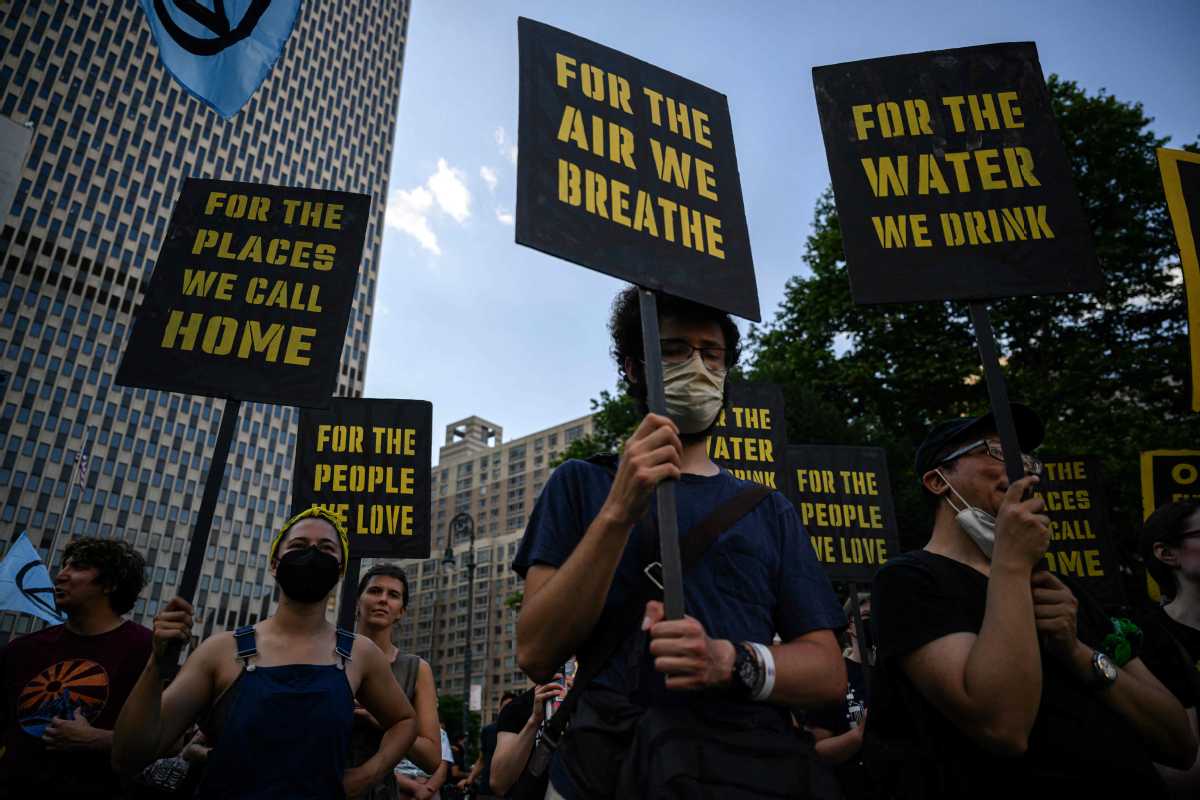Court's ruling on emissions benefits polluters
By LIA ZHU in San Francisco | CHINA DAILY | Updated: 2022-07-05 07:29

Climate policy in the United States has suffered a setback with a Supreme Court decision that curbed the Environmental Protection Agency's ability to restrict carbon emissions from the country's power plants, experts said.
The court's conservative majority, with its 6-3 ruling in the case of West Virginia v. EPA, found that the agency does not have the authority to put a limit on emissions and force power plants to transition away from fossil fuels to renewable energy without specific congressional approval.
EPA Administrator Michael Regan said the ruling on Thursday was a setback and it makes the US less competitive globally. He said the agency was reviewing the ruling and will use "lawful authorities to protect public health and tackle the climate crisis".
The ruling applies to the EPA's 2015 Clean Power Plan, a (Barack) Obama-era rule which had a goal of "generation shifting", or accelerating the shift from coal-fired power to renewable energy and natural gas. The plan set a goal for each state to limit carbon emissions, while letting those states determine how to meet those goals.
The court's majority opinion, written by Chief Justice John Roberts, said the "major questions doctrine" applies, which requires specific congressional approval for regulations with major national implications.
Daniel Farber, a law professor and faculty director of the Center for Law, Energy, and the Environment at the University of California, Berkeley, said: "This judicial doctrine puts some limits on how much the government can do without new climate legislation from Congress. The court believed that EPA was going outside its area of authority in order to regulate the entire energy system. However, very few regulations are subject to this objection. Lawyers will undoubtedly keep raising this argument, but in most cases, it will be unsuccessful."
In an email to China Daily, Jay Duffy, an attorney at Clean Air Task Force, said it was the first time the Supreme Court declared it a doctrine and expanded it significantly from a principle to ensure that an agency was acting within its lane before it made a decision.
"Now, it seems that based on a variety of ill-defined factors, courts must determine if a rule is major, and if so, locate explicit authorization for the actual rule in the statute. This is counter to the way Congress generally operates, which is to rely on agency expertise to craft solutions to novel and evolving problems pursuant to broad language," Duffy said.
"Here, the doctrine was utilized to take the best means of reducing pollution from the power sector off the table. There are still paths forward in this instance with CCS (carbon capture and storage) and co-firing controls, but other avenues may not be so easily identifiable in other instances."
Electricity generation accounts for around 25 percent of greenhouse gas emissions in the US and coal powers about 20 percent of US electricity, according to the EPA. President Joe Biden has set a goal for an emissions-free power sector by 2035.
The "generation shifting" approach, which the Supreme Court said the EPA did not have, is "environmentally effective, economically efficient, and supported by power companies", said Dena Adler, a research scholar at the Institute for Policy Integrity at New York University's School of Law.
"While this is an unwelcome and unnecessary setback for addressing the urgent climate crisis, EPA still retains the authority, and an obligation, to limit greenhouse gas emissions, including from the power sector," she told China Daily.
"Market trends have already driven the power sector to surpass the Clean Power Plan's goals and continue to drive the power sector away from coal. Meanwhile, the federal government has other levers to reduce greenhouse gas emissions in the power sector, and many pathways to take climate action more broadly."
Farber agreed: "This is a setback for US climate policy, but it should not be exaggerated."
























